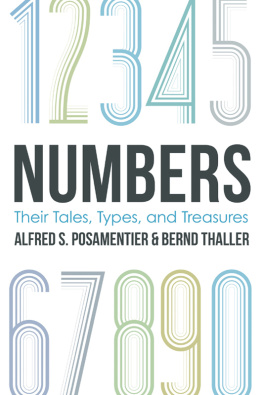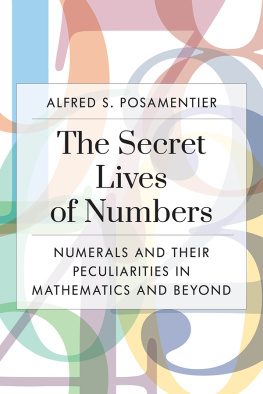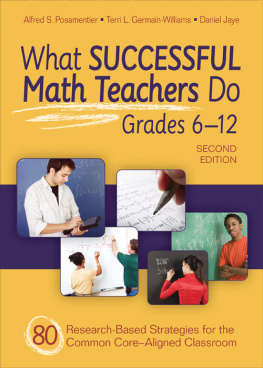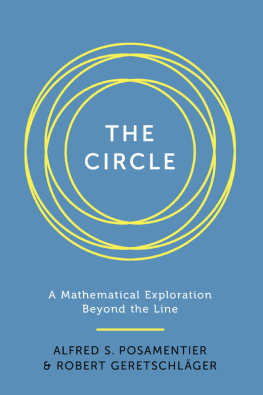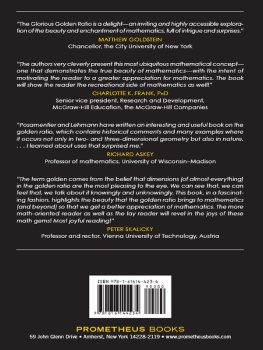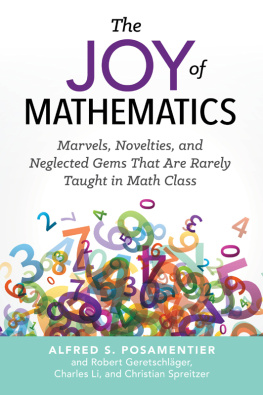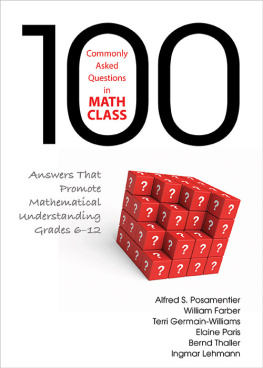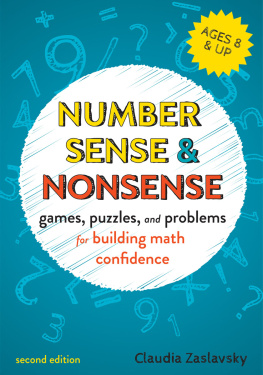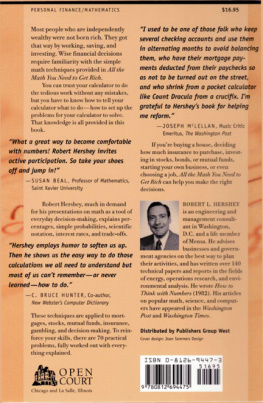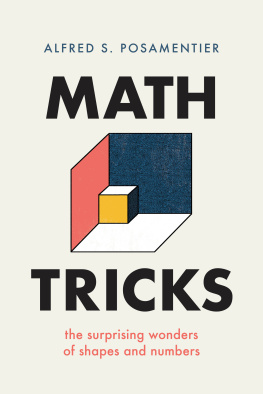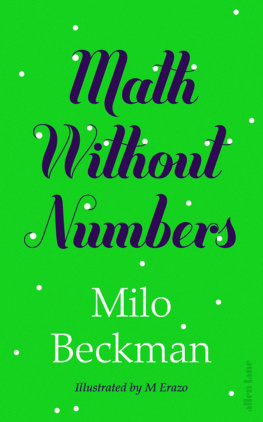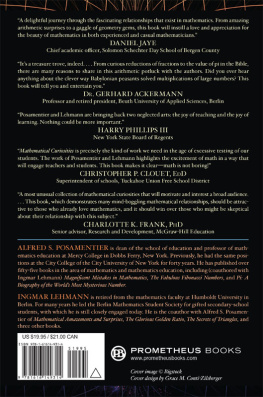We would like to thank Norbert Holzer, an expert in the preparation of elementary school teachers in Graz, Austria, and a specialist for dyscalculia and its diagnosis, who provided us fine insights about how children develop their ability to count. We are also grateful to Dr. Peter Schpf, retired mathematics professor of the Karl-Franzens University in Graz, for his keen insight into the history and philosophy of mathematics. We also thank Peter Poole for his timely support with a few topics in the book.
Many thanks to Catherine Roberts-Abel for very capably managing the production of this book, and to Jade Zora Scibilia for the truly outstanding editing throughout the various phases of production, with the assistance of Sheila Stewart. Steven L. Mitchell, editor in chief, deserves praise for enabling us to approach the general readership to expose the gems that lie among the commonly known concept of numbers.
1.1.A MENTAL NETWORK
We can't live without numbers. We encounter them every hour of every day. Numbers have shaped the way we think about the world. They penetrate every aspect of our life. Our whole society is organized with the help of numbers; it depends on numbers in many respects, and it has been that way since the dawn of civilization. Numbers rule our life.
We need numbers for counting, for measuring, and for doing calculations. We have numbers to describe dates and times and to tell the price of goods and services. We use numbers when we buy our meals or count our days. Numbers can be manipulated to improve statistics or to cheat in games. We are identified by Social Security numbers, license numbers, credit card numbers, and telephone numbers. Numbers describe sports records, baseball scores, and batting averages. Science, economy, and business are all about numbers, and we find numbers even in music, for example, in rhythm and harmony. To some, numbers are a never-ending source of joy and fascination, while others feel that numbers are depressing, impersonal, often incomprehensible, and without soul. Undoubtedly, people who lack fundamental skills with numbers will face diminished life chances, difficulties finding a job, and other serious impairments in everyday life, similar to people who can't read.
The immense importance of numbers should make us pause a bit and think about their nature and their origin. What are numbers? Where do they come from? Who was the first to use them? Indeed, there is more to these questions than meets the eye. In order to find answers, we will embark on a journey that visits the realms of psychology, ethnology, history, and philosophy. In the course of this journey, we will learn about ourselves, our mind, and our number sense; we will think about reality and mathematics; and we will encounter fascinating ideas and surprising facts.
Indeed, what is a number? At first, this may seem like a rather odd and unnecessary question. The symbols 1, 2, 3, 4, and so on appear so utterly familiar; their meanings seem so obvious that an explanation can only create confusion. Numbers belong to our shared knowledge about the world. We all recognize a number when we see one. It is notoriously difficult to explain something that everybody knows already, in particular if one hasn't thought of it before.
Marvin Minsky, in his book The Society of Mind, also muses about the nature of numbers and asks why it would be so difficult to explain meaning to others: Because what something means depends on every different person's state of mind. The hope that through an explanation or precise definition, different people could understand things in exactly the same ways cannot be fulfilled, because in order for two minds to agree perfectly, at every level of detail, they'd have to be identical. Nevertheless, the closest we can come to agreeing on meanings is in mathematics, when we talk of things like Three and Five. But even something as impersonal as Five never stands isolated in a person's mind but becomes part of a huge network.
In everyday life, there are many occasions contributing to the growth of the mental network of knowledge and meaning that is associated with a number. Numbers are often encountered in situations that have little to do with mathematics. Think for a moment of a number like four, and you will certainly come up with a lot of situations where this number plays a role (such as, the four wheels of a car, the four wisdom teeth, the four seasons, and so on). Even a less obvious example, like the number nine, produces a lot of associations in various contextsthere are Dante's nine circles of hell, Tolkien's nine rings of power, and the nine worlds of Yggdrasil in Norse mythology. Beethoven composed nine symphonies; a Chinese dragon has nine forms; Europeans like nine-pin bowling games; in the Caribbean Sea we find nine-armed sea stars; in Jewish culture, the Chanukah menorah is a nine-branched candelabrum; a baseball team has nine players on the field, and a complete game has nine innings. An old saying goes that a cat has

